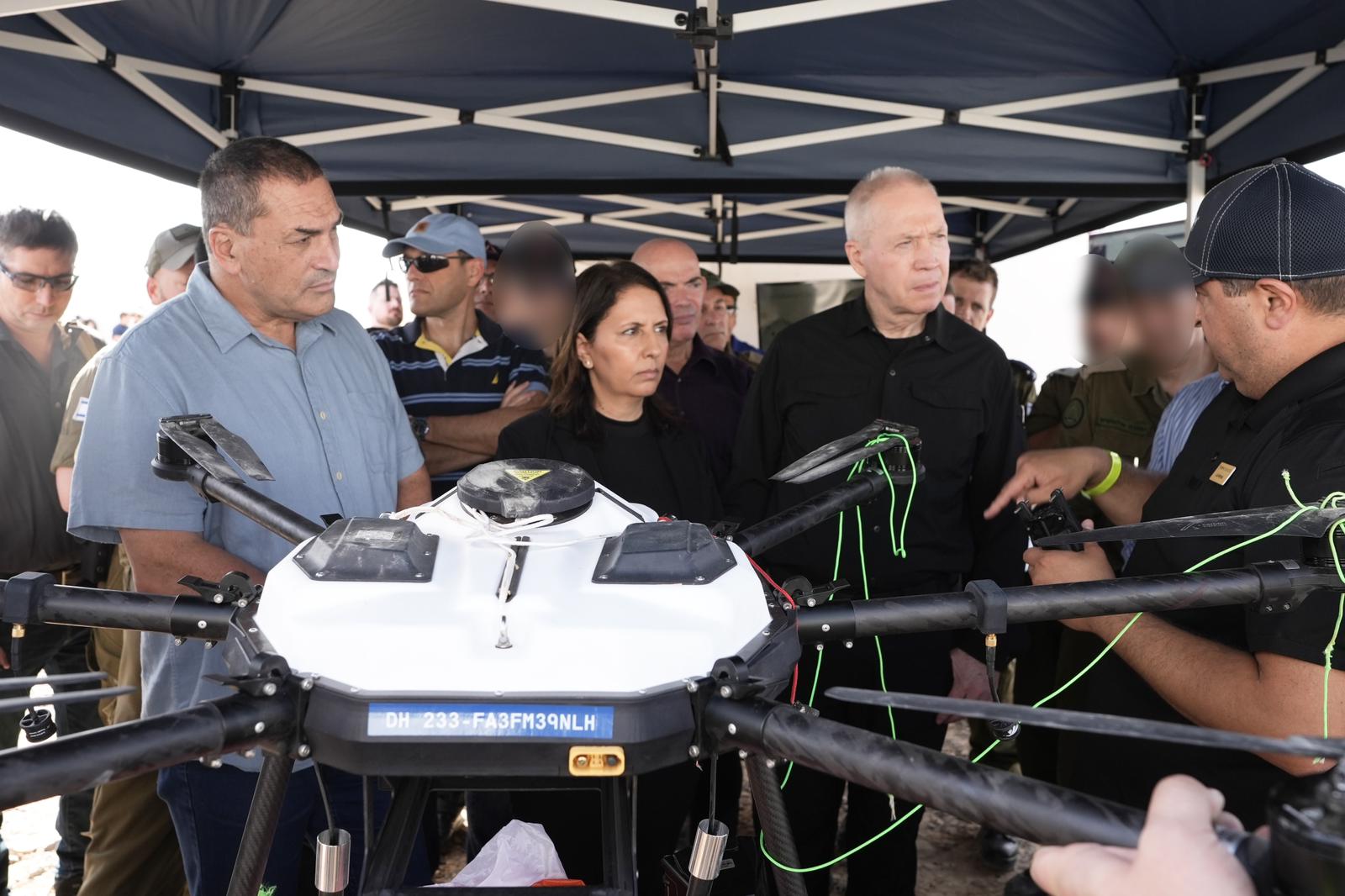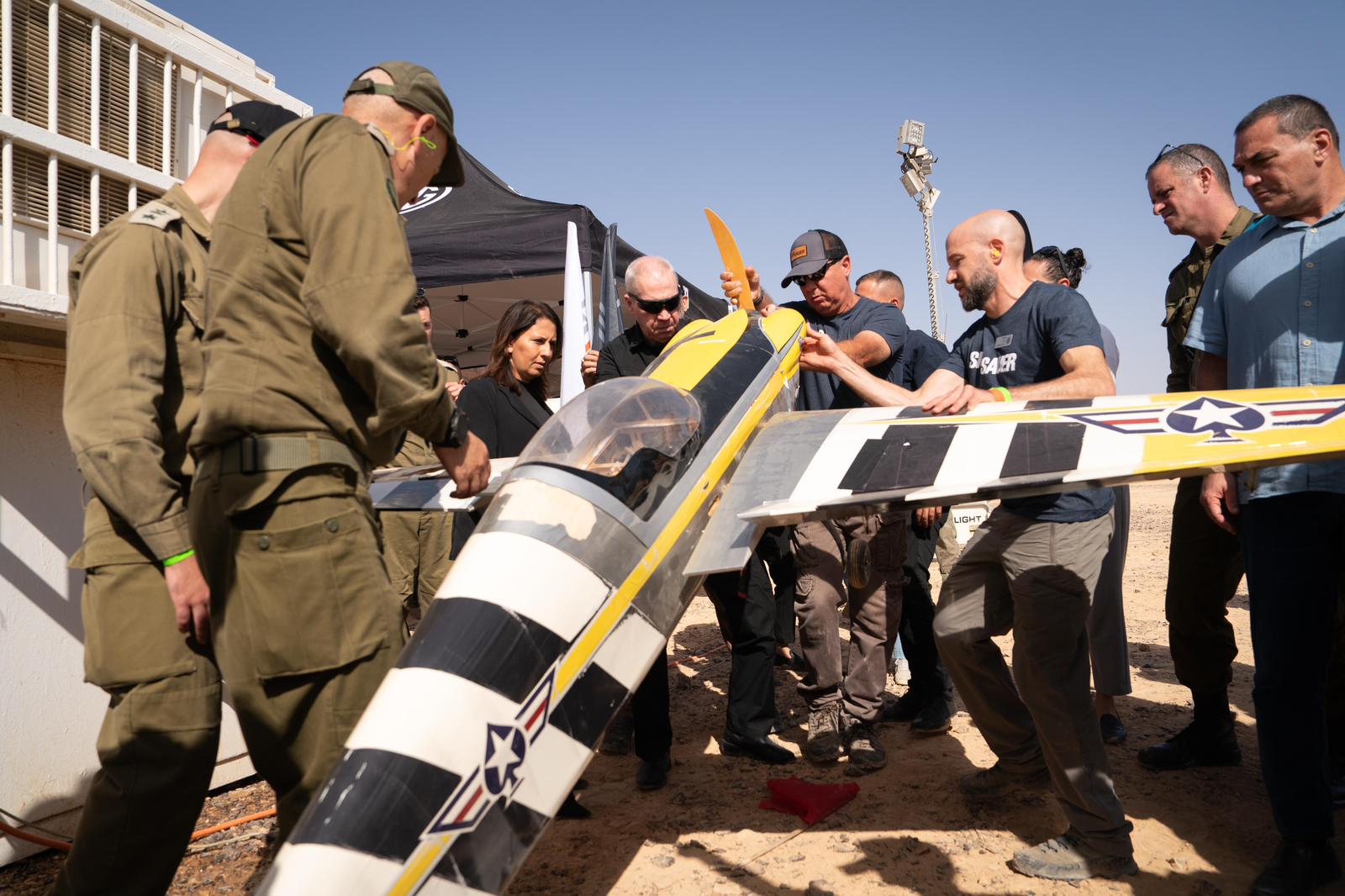
In a significant move to bolster its defence capabilities against drone threats, Israel’s Ministry of Defence (MOD) conducted a groundbreaking trial on October 4, focusing on the interception of Unmanned Aerial Vehicles (UAVs). The trial was led by key figures including Defence Minister Yoav Gallant, Minister of Innovation, Science and Technology Gila Gamliel, and Director General of the IMoD Maj. Gen. (Res.) Eyal Zamir.
Taking place at a testing field in southern Israel, the event featured participation from eight Israeli defence industries, ranging from established companies like Elbit Systems, Rafael, and Israel Aerospace Industries to innovative startups. Each entity presented its latest technological solutions designed to intercept UAVs, marking a key step in a competitive process initiated by Gallant aimed at rapidly developing effective interception methods in response to evolving security threats.

“Yesterday’s competition, in which small and large defence industries presented various solutions, from the most sophisticated to simple ones, advances us another step forward,” Gallant stated. He emphasized the multifaceted nature of the UAV threat, which is primarily fuelled by Iranian support for drone operations in Lebanon, Yemen, and Iraq.
The trial showcased various interception prototypes that met established criteria for the demonstration phase. The MOD plans to analyze the results and select several technologies for accelerated development and operational testing, aiming to deploy new capabilities within months.
Maj. Gen. (Res.) Eyal Zamir described countering the UAV threat as a critical national priority, noting that the MOD has invested hundreds of millions of New Israeli Shekels in developing and deploying defensive systems. “Following the Defence Minister’s directive, we established an unrestricted ‘green track’ for any entity—a major industry or a startup—that can deliver an effective solution,” Zamir remarked. He added that this initiative is designed to expedite the development and deployment of new interception systems as part of a broader defensive strategy.

Brig. Gen. (Res.) Dr. Daniel Gold, head of the Directorate of Defence Research and Development (DDR&D), emphasized the commitment of the defence establishment to create a comprehensive response to UAV threats. “We continuously integrate emerging technologies into this array,” Gold said, referring to the operational framework that includes detection, tracking, and interception layers. He noted that this series of trials represents a pivotal advancement in UAV interception capabilities, which will now undergo an accelerated development process under DDR&D’s guidance.
The outcomes of this trial are expected to significantly enhance Israel’s defence posture against aerial threats, reinforcing the nation’s commitment to national security amidst a complex regional landscape.












